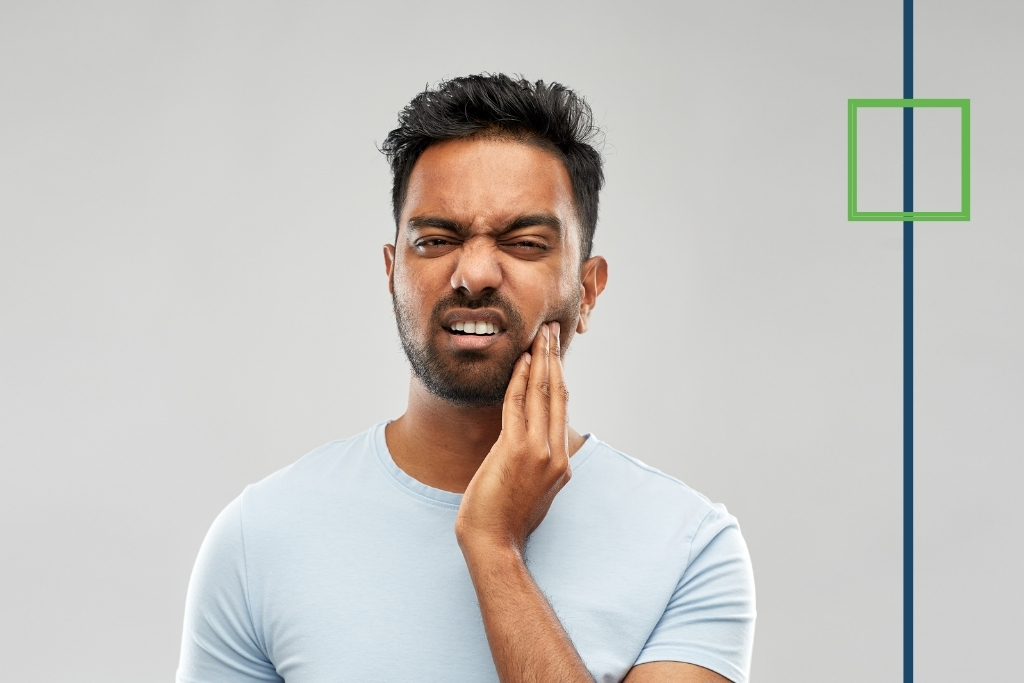Signs and Symptoms of Drug Abuse
If you have a loved one who has a possible substance use problem, you may start to ask yourself what is drug abuse? Drug abuse is the habitual taking of addictive or illegal drugs. The meaning of drug abuse can also include the extreme desire to acquire and use growing amounts of one or more substances. Drug abuse is a general term for abusing any type of drug, including cigarettes and alcohol.
When considering the meaning of drug abuse, it is important to remember that drug abuse is not identical to drug addiction or drug dependence. Drug addiction or dependence signifies a physical or psychological dependence on the drug to function. Drug dependence requires the user to experience symptoms of withdrawal if the drugs were discontinued, but drug abuse does not.
Common signs and symptoms of drug abuse:
- Neglected responsibilities at school, work, or home (e.g. flunking classes, skipping work, neglecting your children) because of drug use.
- Using drugs under dangerous conditions or taking risks while high, such as driving while on drugs, using dirty needles, or having unprotected sex.
- Drug use is causing legal trouble, such as arrests for disorderly conduct, driving under the influence, or stealing to support a drug habit.
- Drug use is causing problems in relationships, such as fights with a partner or family members, an unhappy boss, or the loss of old friends.

Get Help. Get Better. Get Your Life Back.
Searching for Accredited Drug & Alcohol Rehab Centers Near You? Or Mental Health Support?
Even if you have failed previously, relapsed, or are in a difficult crisis, we stand ready to support you. Our trusted behavioral health specialists will not give up on you. Call us when you feel ready or want someone to speak to about therapy alternatives to change your life. Even if we cannot assist you, we will lead you wherever you can get support. There is no obligation. Call our hotline today.
FREE Addiction Hotline – Call 24/7Common signs and symptoms of drug addiction
- Drug tolerance is built up. More of the drug is needed to experience the same effect one used to attain with smaller amounts.
- Drugs are taken to avoid or relieve withdrawal symptoms. Going too long without drugs causes symptoms such as nausea, restlessness, insomnia, depression, sweating, shaking, and anxiety.
- Lost control over drug use. Often doing drugs or using more than planned, even when promising self not to. Wants to stop using, but feels powerless.
- Life revolves around drug use. Spends a lot of time using and thinking about drugs, figuring out how to get them, and recovering from the drug’s effects.
- Abandoned activities previously enjoyed, such as hobbies, sports, and socializing, because of drug use.
- Continues to use drugs, despite knowing it hurts you. Drug use causes major problems — blackouts, infections, mood swings, depression, paranoia — but used anyway.
Unless you observe drug use or excessive drinking, it can be hard to determine the cause of these problems. Your first step is to contact a qualified alcohol and drug professional in your area who can give you further advice.
Drug and alcohol problems can affect every one of us regardless of age, sex, race, marital status, place of residence, income level, or lifestyle. Drug abusers often try to conceal their symptoms and downplay their problems. If you’re worried that a friend or family member might be abusing drugs, look for the following warning signs of drug abuse.
Physical signs of drug abuse
- Bloodshot eyes, pupils larger or smaller than usual.
- Changes in appetite or sleep patterns. Sudden weight loss or gain.
- Deterioration of physical appearance, and personal grooming habits. • Unusual smells on breath, body, or clothing.
- Tremors, slurred speech, or impaired coordination.

Get Your Life Back
Find Hope & Recovery. Get Safe Comfortable Detox, Addiction Rehab & Mental Health Dual Diagnosis High-Quality Care at the We Level Up Treatment Centers Network.
Hotline (877) 378-4154Behavioral signs of drug abuse
- Drop in attendance and performance at work or school.
- Unexplained need for money or financial problems. May borrow or steal to get it.
- Engaging in secretive or suspicious behaviors.
- Sudden change in friends, favorite hangouts, and hobbies.
- Frequently getting into trouble (fights, accidents, illegal activities).
Psychological warning signs of drug abuse
- Unexplained change in personality or attitude.
- Sudden mood swings, irritability, or angry outbursts.
- Periods of unusual hyperactivity, agitation, or giddiness.
- Lack of motivation; appears lethargic or “spaced out.”
- Appears fearful, anxious, or paranoid for no reason.
Warning Signs of Drug Abuse
Many people don’t recognize the warning signs as they slip from recreational substance abuse to addiction. It can happen so gradually that even those around you don’t notice. Unfortunately, once a drug addiction occurs, it often comes with many negative consequences and can even endanger a person’s life. Recognizing the warning signs of drug abuse is crucial in preventing the addiction early on.
Loss of Interest
When drug abuse takes over, it becomes the top priority in an individual’s mind. The person is constantly thinking about the next time they’ll take drugs, how much they’ll take, where they’ll get the drugs from, and more. Due to this new extreme focus, other aspects of the person’s life fade away as irrelevant. Hobbies, passions, and interests the person used to love will no longer interest them. For example, someone who religiously played soccer for years will stop showing up to all practices or games.
Comfortable Facilities & Amenities
High-Quality Addiction & Mental Health Rehabilitation Treatment
Rehab Centers TourRenowned Addiction Centers. Serene Private Facilities. Inpatient rehab programs vary.
Addiction Helpline (877) 378-4154Proven recovery success experience, backed by a Team w/ History of:
15+
Years of Unified Experience
100s
5-Star Reviews Across Our Centers
10K
Recovery Success Stories Across Our Network
- Low Patient to Therapist Ratio
- Onsite Medical Detox Center
- Comprehensive Dual-Diagnosis Treatment
- Complimentary Family & Alumni Programs
- Coaching, Recovery & Personal Development Events
Severe Mood Swings
Another common warning sign of drug abuse is severe mood swings. The individual can experience panic or withdrawal symptoms when they’re not using, putting them in a rage. Depending on what type of drug they’re using, they could be extremely relaxed and happy when they’re high. Additionally, excessive drug use can make a person paranoid.

Physical Appearance
Drug use can take a toll on the body. Over time, a person’s physical appearance will give away their developing addiction. They might:
- Experience significant weight change, either weight gain or loss
- Look run-down due to lack of sleep
- Have injection marks or scabs
- Have red eyes or dilated eyes
- Stop putting effort into their appearance – such as showering, brushing their teeth, etc.
- Have unusual body odors
- Display new ticks or behaviors, such as constant sniffing or itching
Unusual Sleep Habits
Drug abuse can significantly impact a person’s regular sleeping routine. Individuals with a substance abuse addiction may experience insomnia, sleep too much, or sleep at weird times of the day.
Overall, the most significant warning sign of drug abuse is a sudden and extreme change in a person. A substance abuse addiction can take over and change how a person acts and thinks. Noticing this change early is critical so professional help can be arranged.
Signs of Abuse Related to Specific Drugs
In addition to general signs of drug use, specific signs of abuse are associated with particular drugs. This information can help a person spot signs of abuse in a friend, family member, or coworker.
Marijuana/Cannabis
Marijuana and other cannabis-based products, such as edibles, may induce euphoria. They can cause heightened visual and auditory perceptions, but the user may also seem uncoordinated and forgetful. Since cannabis increases appetite, the person may eat more than usual. Reactions may be slower, and the user may also become paranoid and suspicious. Those who have smoked marijuana often appear with bloodshot eyes, droopy eyelids, and an overall relaxed or mellow demeanor.
World-class, Accredited, 5-Star Reviewed, Effective Addiction & Mental Health Programs. Complete Behavioral Health Inpatient Rehab, Detox plus Co-occuring Disorders Therapy.
CALL (877) 378-4154End the Addiction Pain. End the Emotional Rollercoaster. Get Your Life Back. Start Drug, Alcohol & Dual Diagnosis Mental Health Treatment Now. Get Free No-obligation Guidance by Substance Abuse Specialists Who Understand Addiction & Mental Health Recovery & Know How to Help.
Stimulants
A person on a stimulant may exhibit frequent behavior changes, aggression, or rapid or rambling speech. They may display dilated pupils, increased energy, and a fast breathing rate. In some cases, users may become paranoid or hostile. If users snort the drug, nasal congestion is a common sign of use. Snorting drugs like cocaine can damage the mucous membrane inside the nose.
Barbiturates and Benzodiazepines
These CNS depressants are often prescribed to treat anxiety and sleep disorders. Benzodiazepines include common medications, such as Valium and Xanax. Barbiturates are not used as much as they used to be; however, they are still sometimes employed to treat seizure disorders and during surgery.
Barbiturates carry a higher risk of overdose than benzodiazepines. A person who abuses these drugs may appear uninhibited, dizzy, or depressed. They may experience blurry vision, balance issues, and overall confusion. They may also present with involuntary eye movements, known as nystagmus.
Hallucinogens
The signs of hallucinogen use vary depending on the specific hallucinogen in question. LSD may cause a person to act impulsively and experience hallucinations. They may claim to hear colors or see sounds, and in some cases, they may experience tremors.
If a person has used PCP, they may be unable to feel pain and seem intolerant to loud noise. Someone who has used psilocybin, or “magic mushrooms,” may experience hallucinations, nausea, muscle twitching, and difficulty differentiating between hallucinations and reality. People on hallucinogens may appear drowsy, panicked, or at peace, depending on the type of “trip” they are having.
Opioids
Opioids include both prescription painkillers, like Vicodin and OxyContin, and the illicit drug heroin. Signs of opioid abuse include overall sedation, memory issues, inability to concentrate, slowed reaction times, lethargy, and mood swings. Since opioids can slow the digestive system, users often experience constipation and other intestinal issues. When without the drug, users may become anxious and display flulike symptoms.
Club drugs
Ecstasy, ketamine, and GHB are common types of club drugs. Signs and symptoms of use include increased body temperature, poor coordination, dizziness, excessive sweating, clenched teeth, and slurred speech.
Finding the Next Level of Treatment At We Level Up NJ
Recognizing the signs of drug abuse is not only for trained professionals. Family and friends are the first lines of attack against an advancing drug problem. One of the best responses to witnessing the signs is to talk to a qualified counselor about how to get help.
If you’ve tried to quit in the past but ended up drinking or using, that’s a clear sign you need professional help. Get them the safest help they need and deserve. Our team at We Level Up NJ specializes in creating an ideal environment and providing effective therapies.

Experience Transformative Recovery at the We Level Up Treatment Center.
See our authentic success stories. Get inspired. Get the help you deserve.



Start a New Life
Begin with a free call to an addiction & behavioral health treatment advisor. Learn more about our dual-diagnosis programs. The We Level Up treatment center network delivers various recovery programs at each treatment facility. Call to learn more.
- Personalized Care
- Caring Accountable Staff
- Comfortable Amenities
- Licensed & Accredited
- Renowned w/ 5-Star Reviews